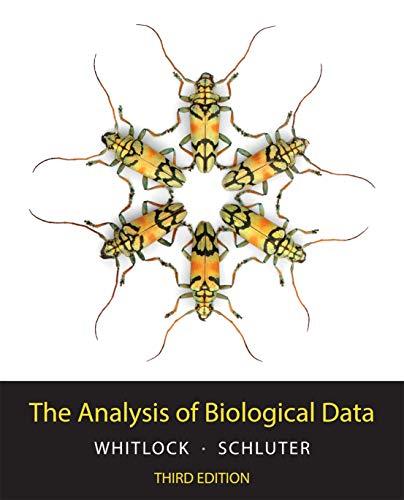Mosquitoes contribute to more human deaths than any other organism, because they transmit diseases such as malaria,
Question:
Mosquitoes contribute to more human deaths than any other organism, because they transmit diseases such as malaria, dengue fever, and yellow fever. Some of these diseases develop or grow inside the mosquito—a process that can take some time. Therefore, one possible strategy to reduce transmission of disease is to cause mosquitos to die slightly sooner, leaving insufficient time for the disease to develop. Fang et al. (2011) tested the idea by infecting mosquitos with a fungus (Metarhizum anisopliae) that reduces the life span of the insect. In addition, they developed a transgenic strain of fungus that carries a gene for scorpine, a protein from scorpion venom known to inhibit the gamete stages of malaria. They compared three groups of mosquitoes: a “control” group that was not treated with fungus, a “wild type” group that was infected with unmodified fungus, and a “scorpine” group that was infected with the transgenic fungus. Each mosquito was infected with malaria. The response variable was the log number of sporozoites (infectious cells of malaria) in the salivary glands of the mosquitoes. Here are the data:

![]()
a. Show the data in a graph. What pattern is suggested?
b. Examine the frequency distributions of the data. What statistical approach would be the most appropriate to determine whether these treatments vary in their number of sporozoites? Why?
Step by Step Answer:

The Analysis Of Biological Data
ISBN: 9781319226237
3rd Edition
Authors: Michael C. Whitlock, Dolph Schluter





